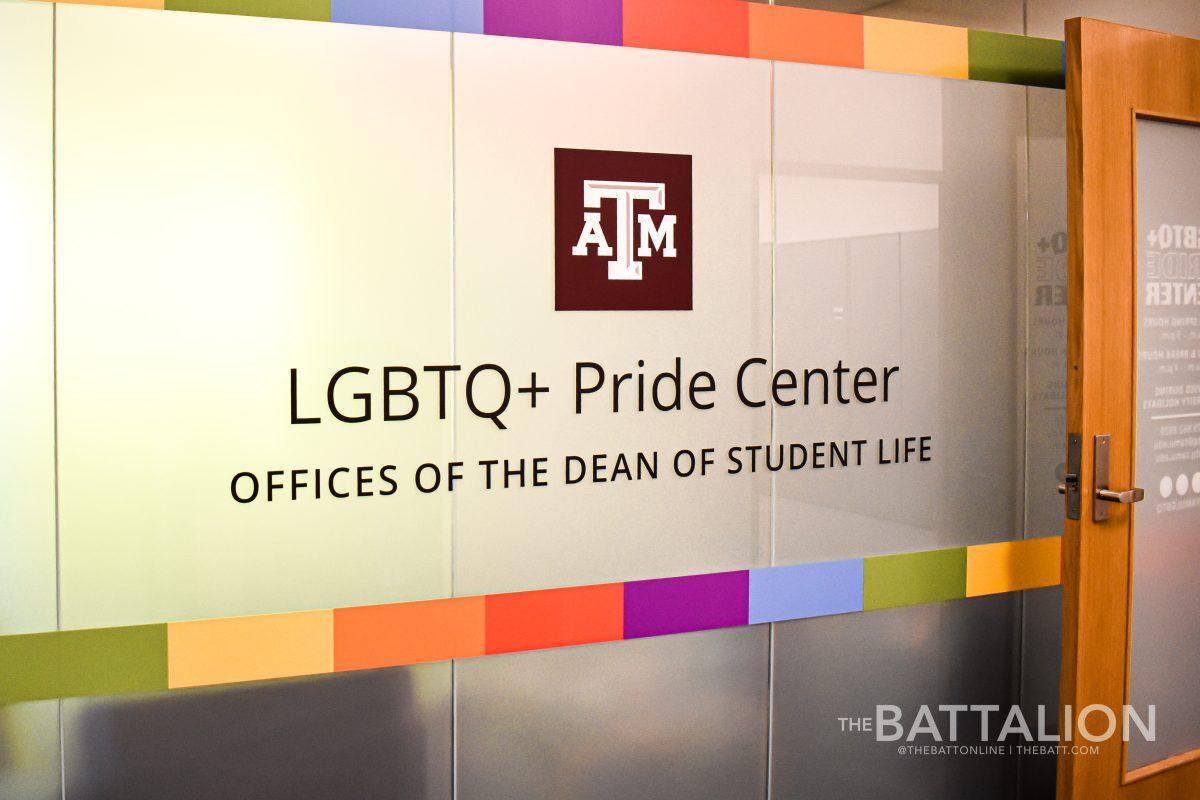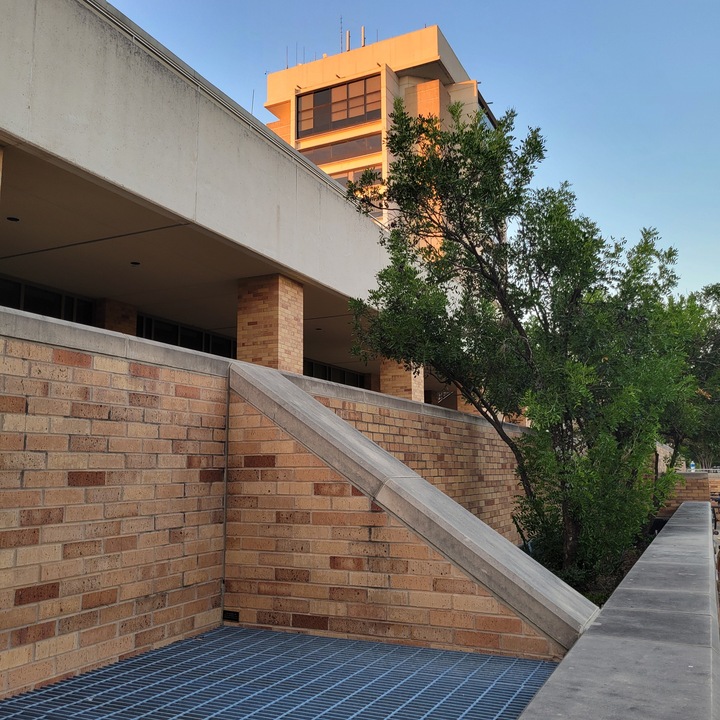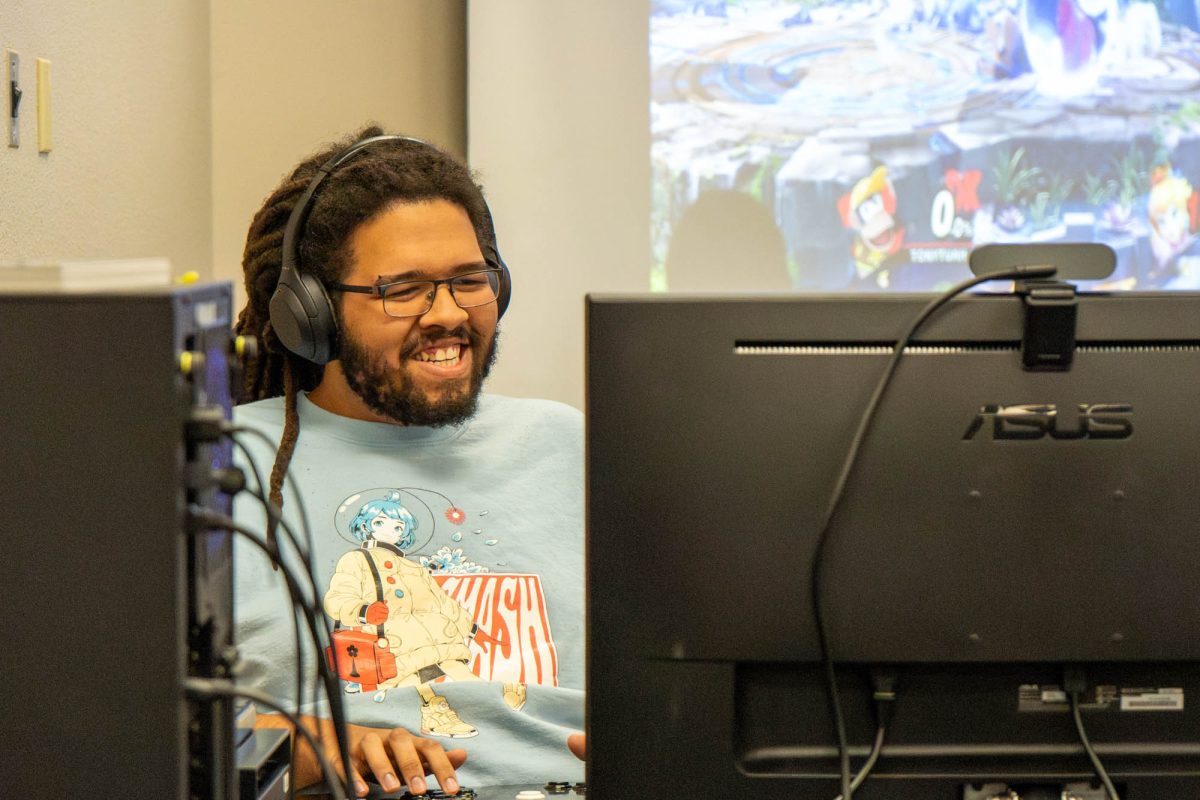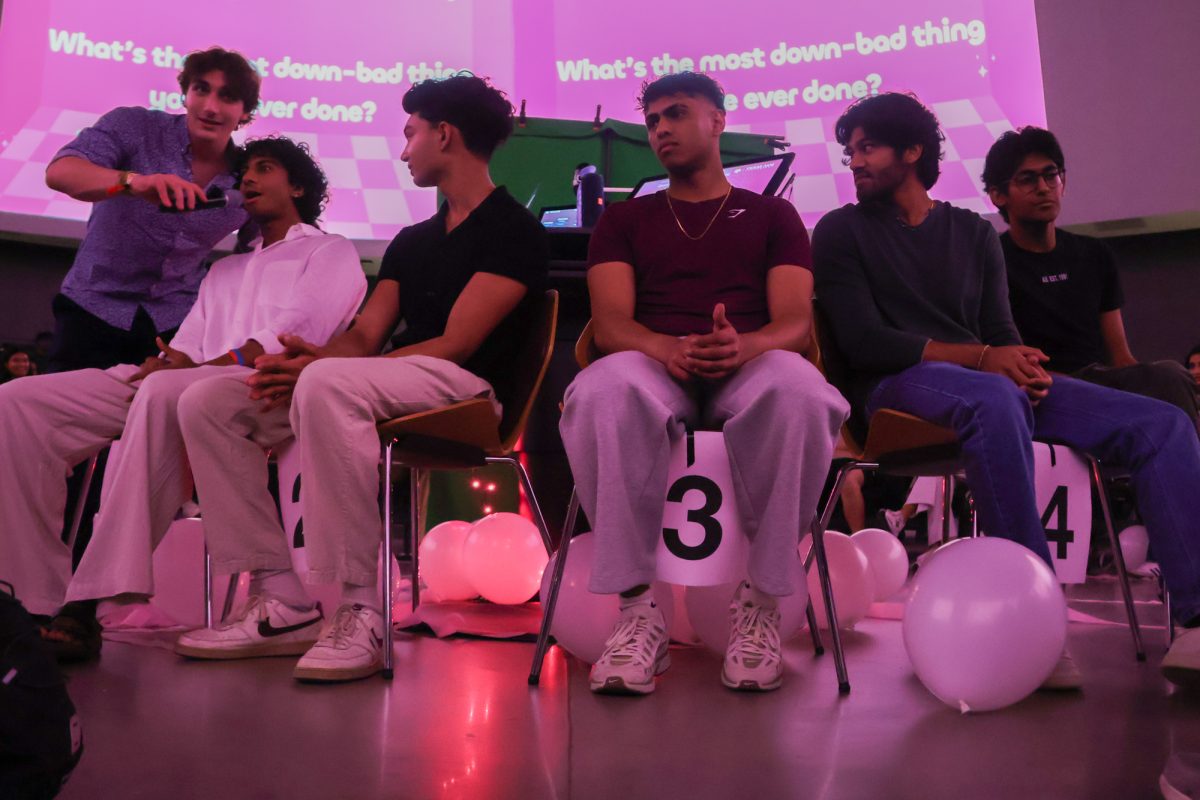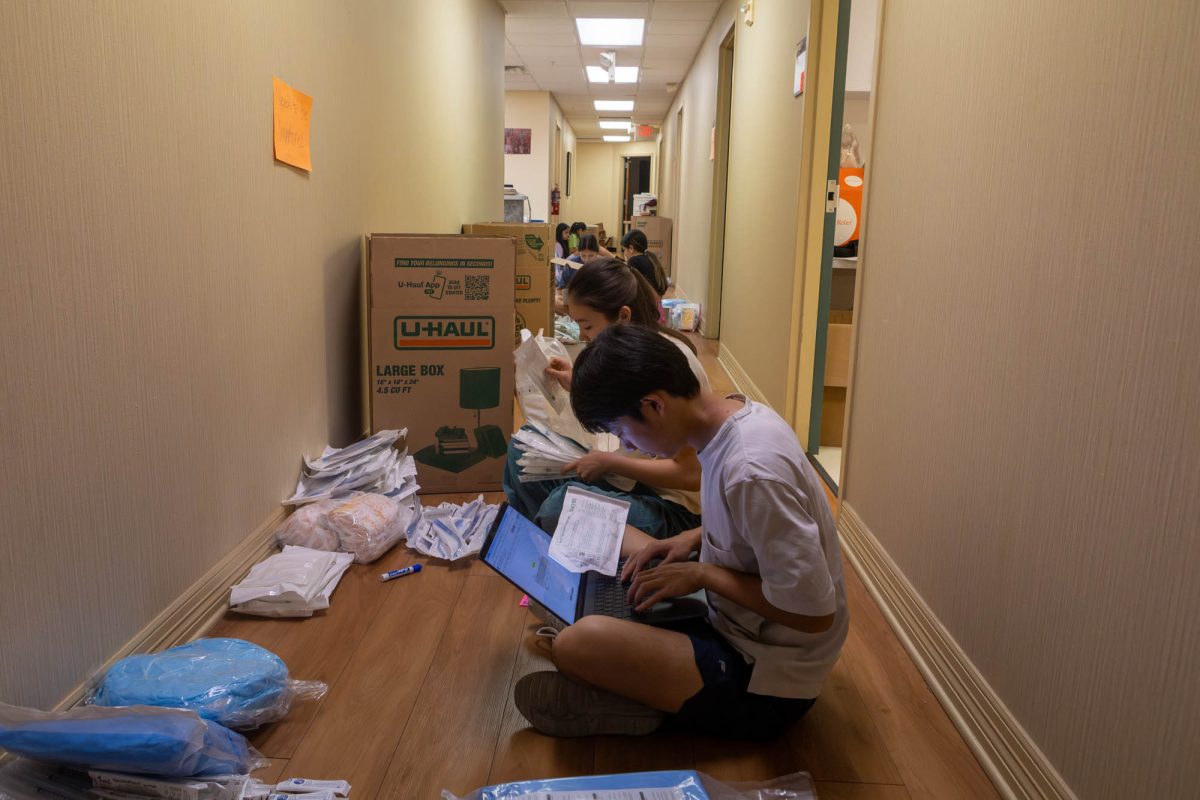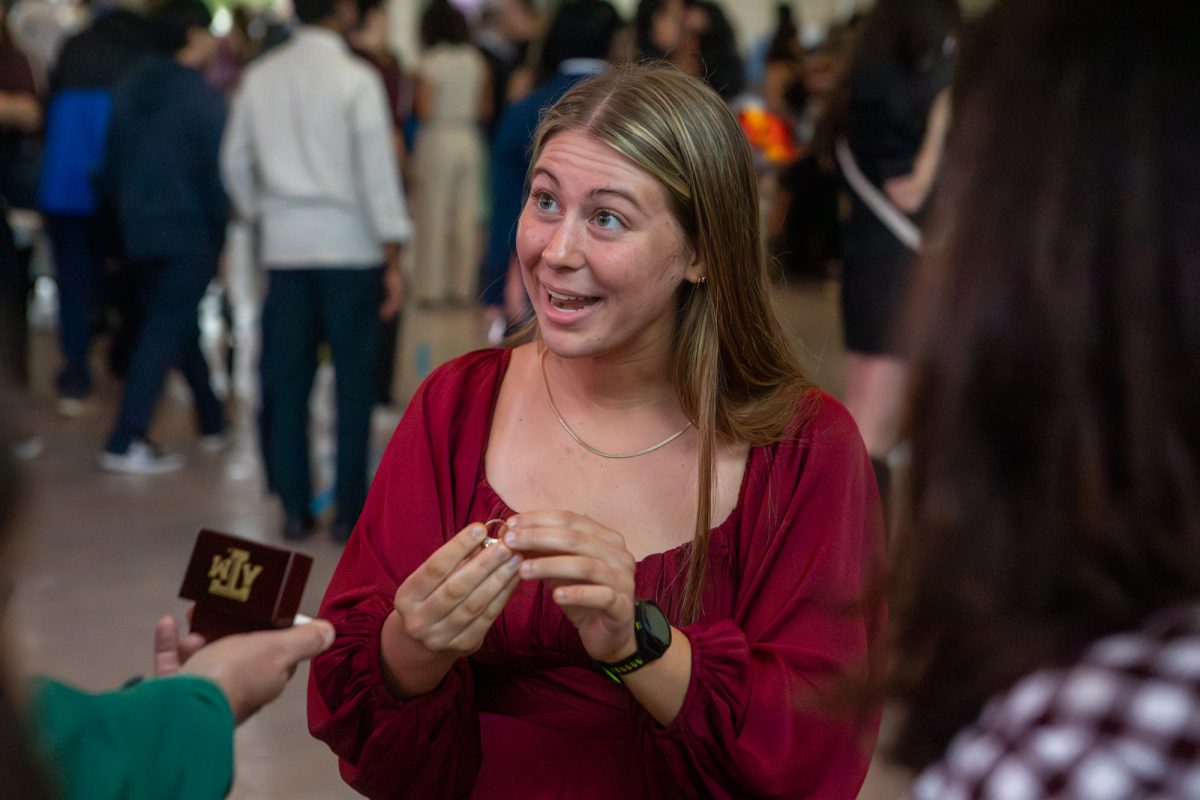Found on the second floor of the Student Services Building is the LGBTQ+ Pride Center, guarded by the office’s mascot Gay-zilla. While Pride Month is currently underway, the center provides student and community support year-round.
Frances Jackson serves as the coordinator of the Pride Center. Their goal for the center is to provide resources so LGBTQ+ students can thrive in college, Jackson said.
“The LGBTQ+ Pride Center supports a thriving environment for our LGBTQ+ students and allies,” Jackson said. “The whole broad spectrum of identities in the spirit of the Aggie core values.”
The center is home to a staff of full-time and student workers and supports a range of activities including speaker series, sponsored organizations and media such as books, movies and games that students can check out. Biology senior Tristan Dore, who works at the Pride Center, said he has loved the positive energy of his job.
“It’s [so nice] being in an office where I can really express who I am, and be myself fully without the risks and regulations of a traditional job. It’s so much easier mentally being able to just be who I am,” Dore said. “It’s open, and people can come in and hang out. We have a huge hang out space behind our office, and there’s nobody in it.”
Though the center does provide a range of services, Dore said it’s important for both LGBTQ+ students and their allies to show support, even in subtle ways.
“When you come and visit, we have a ton of swag like stickers and pins and we also have free contraceptives,” Dore said. “We have a ton of really cool stickers that students can put on their cars, or cellphones, or laptop cases, and it’s an outward thing where if people see them on campus, they know you’re a safe person, it’s a non-verbal thing.”
Kevin Garcia, class of 2021, said the center and Pride month itself have allowed him to feel more represented, and hopes it has the same effect on others.
“For me, the main thing is representation. Especially for people who live in very conversative communities. For example, I was born in Mexico … The culture [towards the LGBTQ+ community] in Mexico in general is not very positive,” Garcia said. “It just helps show the people that are maybe scared to come out or don’t feel that they’re able to, or don’t feel like they belong anywhere that there are people like you all over the world.”
Jackson recalled their first Pride experience as a young adult, and the impact it had on their identity. They said Pride celebrations have been affirming on a personal level.
“I attended my first Pride when I was 21 or 22, and it was really my first public experience of seeing so many queer people,” Jackson said. “As someone who identifies as pan[sexual] and non-binary, there are a lot of invisible parts of me that don’t get recognized. But during the months of June and October, that’s when these things are celebrated. You feel valued and affirmed.”
In addition to personal gratification, Jackson said Pride is also a time to reflect on the progression of LGBTQ+ rights, and how much further this progress has to go.
“Things like conversion therapy are still legal in the United States … This year Texas has moved back and forth on whether or not social workers can deny access [to LGBTQ+ clients],” Jackson said. “[Pride is] this beautiful affirming thing, but it is a reminder that there still is a lot of legal progress beyond marriage equality.”
While the LGBTQ+ community still faces hurdles in topics of healthcare, intersectionality and legal protection, this Pride Month it is still critical to celebrate the culture and history of the gay community. Dore said despite these obstacles, Pride is an exciting time to celebrate with your community.
“Pride, to me, is one of those things where it’s expressing that you can be who you are, regardless of anything that society has said or says currently,” Dore said. “[Pride] allows you to express yourself with a community of people that are like-minded, and/or your chosen families.”




